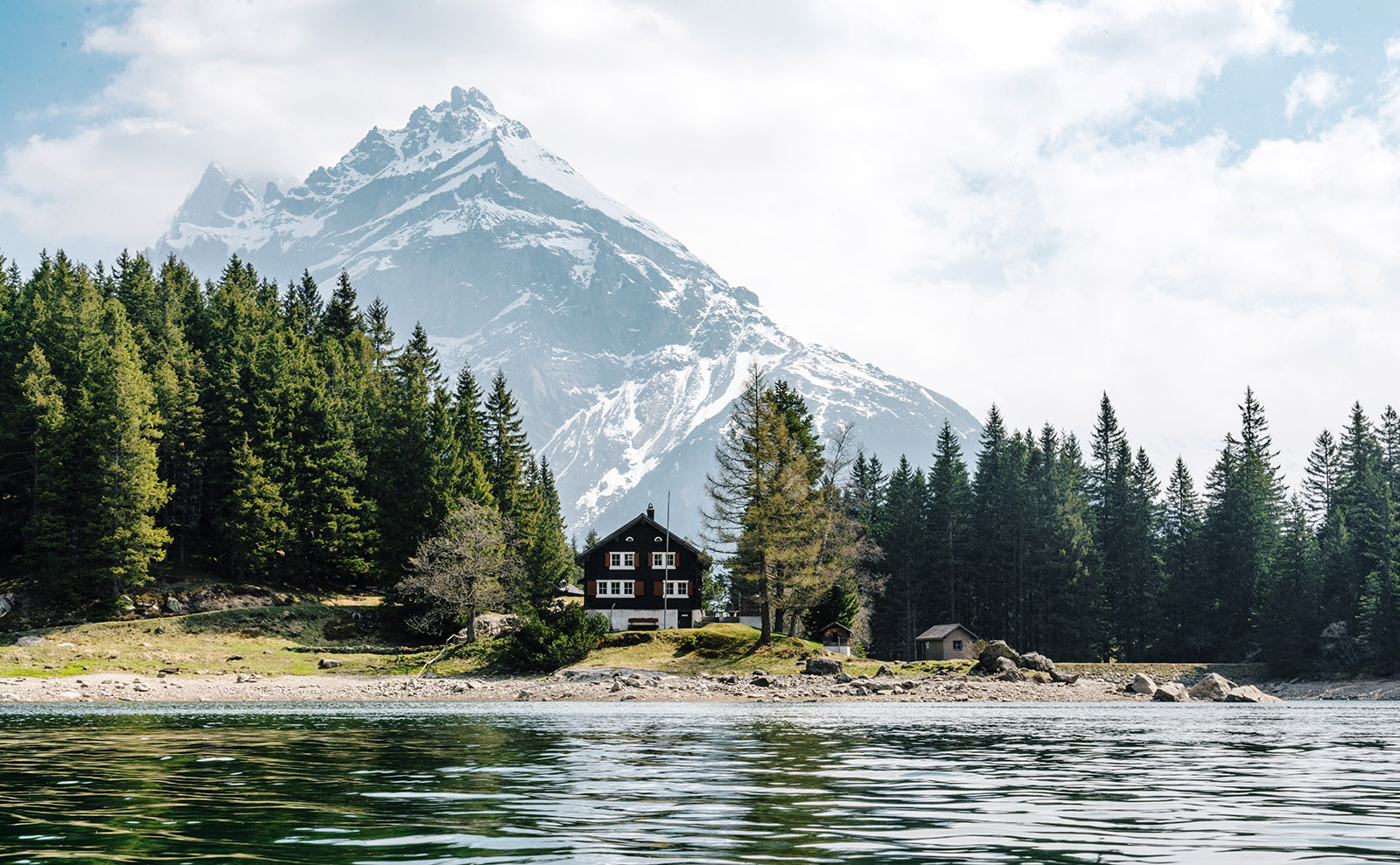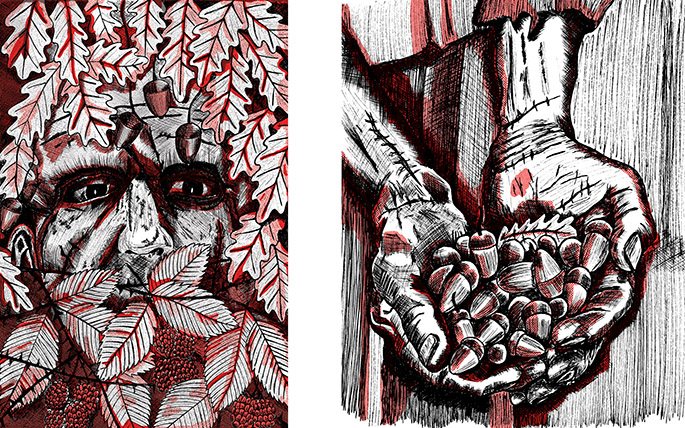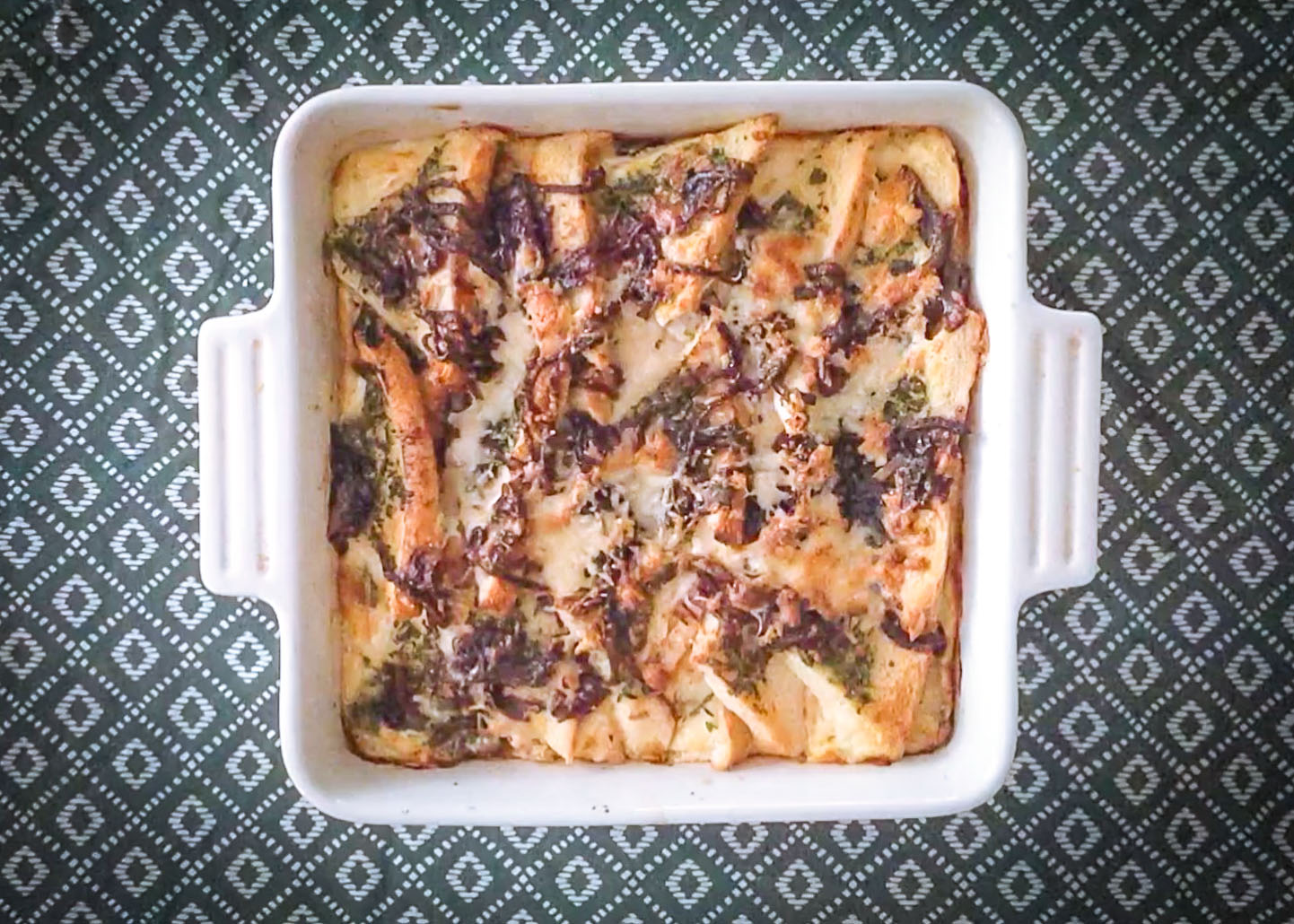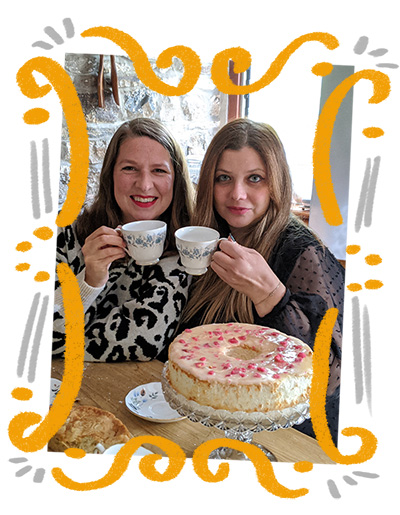
Armchair travel around the world!
Start your reading adventures with our FREE Reading Atlas.

- Around the World in 14 Books
- 7 Thrilling Book Series
- 6 Audiobooks That Are Like Theater For Your Ears



Food and drinks are some of the easiest ways — and the most fun— to vicariously experience another culture. When you add a great book to the mix, you've got the makings of a perfect evening. In Food+Fiction, we recommend a delicious read and a related recipe so you can try the taste of different destinations in your own kitchen.
This post is part of our Food+Fiction series.

You know that at SSoP HQ, we believe that travel, books, and food go together like burgers, fries, and milkshakes — they’re all great on their own but are made even better when you enjoy them together. So we’re delighted today to share a guest post by Ella Buchan, co-author of the forthcoming A Gothic Cookbook. This recipe for Shepherd’s Breakfast Bake was inspired by the Gothic novel Frankenstein; or, the Modern Prometheus which, itself, is more than one thing, combining the tropes of travelogue (the descriptions of scenery in Switzerland are particularly lush), suspense novel, and Gothic horror in a story that’s as affecting today as it was when it was published in 1818. — Melissa

Frankenstein; or, the Modern Prometheus is one of the most famous Gothic novels of all time. It’s also one of the most misunderstood. There’s that frequent confusion over who is actually ‘Frankenstein’ — it’s Victor, the creator. And then there’s the mislabeling of the cobbled-together creature as a ‘monster,’ an image reinforced in movies and cartoons.
In Mary Shelley’s novel, though, the creature is an eloquent being who wishes no harm to any human or animal. That is, at least, until he’s so spurned by Victor and every other person who sees his terrifying visage.
He’s also vegetarian, a detail that isn’t underplayed in the novel or one that’s incidental to the themes. Shelley, her husband Percy Bysshe, and particularly their friend, Lord Byron, discussed the ethics of meat-eating and spent periods of their lives following a vegetarian diet.
Frankenstein’s creature is painted, in some ways, as morally superior, particularly when he begs Victor for a female companion and, in return, promises to inflict no further harm: ‘My food is not that of man; I do not destroy the lamb and the kid to glut my appetite; acorns and berries afford me sufficient nourishment.’

While crunching on acorns and foraging berries and roots might not be hugely appealing, the ‘shepherd’s breakfast’ — which the creature ‘greedily’ devours, having unwittingly frightened away its preparer — sounds pretty delicious. It’s a simple platter of bread, cheese, milk, and wine.
This recipe for a breakfast bake takes those humble plate-fellows and turns them into a warm, cheesy, gooey, baked savory bread pudding.
A warning, however: It can serve up to six people as a side but, should you be tempted to dig in a spoon just to try a little, don’t be surprised if you get carried away and end up with an empty dish, a full belly, and hungry guests.

Serves 4 (6 as a side). Prep 20 minutes. Bake 30 minutes. Adapted from A Gothic Cookbook.
Caramelized onions:
Bread Pudding:
Caramelize the onions. In a skillet, heat the olive oil over medium heat, 2-3 minutes, then add onions and sauté until soft, 5-7 minutes. Add the vinegar, sugar, and wine. Increase the heat to medium-high and cook until the liquid has evaporated and the onions are sticky. Season with salt and pepper and set aside.
Prepare the bread layer. Blend the softened butter with the herbs and a pinch of salt. Spread the butter on each slice of bread, then cut the pieces into quarter triangles.
Preheat the oven to 350F/180C. Grease a 2-quart (2-liter) baking dish. Arrange a layer of bread on the bottom, top with a layer of onions, and sprinkle with cheese. Repeat the layers until the ingredients are used up, ending with cheese.
Make the ‘custard.’ Whisk together the milk, cream, eggs, mustard, salt, and pepper. Pour over the bread, gently pushing down the bread, so it soaks up the liquid. Allow it to rest for 5 minutes. Perhaps read a few pages of Frankenstein.
Big finish. Bake for 25-30 minutes, until puffy and lightly golden. (This is a golden opportunity to read more of Frankenstein.) Cut the bread pudding into squares and devour immediately.
It was about seven in the morning, and I longed to obtain food and shelter; at length I perceived a small hut, on a rising ground, which had doubtless been built for the convenience of some shepherd. This was a new sight to me, and I examined the structure with great curiosity. Finding the door open, I entered. An old man sat in it, near a fire, over which he was preparing his breakfast. He turned on hearing a noise, and perceiving me, shrieked loudly, and quitting the hut, ran across the fields with a speed of which his debilitated form hardly appeared capable. His appearance, different from any I had ever before seen, and his flight somewhat surprised me. But I was enchanted by the appearance of the hut; here the snow and rain could not penetrate; the ground was dry; and it presented to me then as exquisite and divine a retreat as Pandæmonium appeared to the dæmons of hell after their sufferings in the lake of fire. I greedily devoured the remnants of the shepherd’s breakfast, which consisted of bread, cheese, milk, and wine; the latter, however, I did not like. Then, overcome by fatigue, I lay down among some straw and fell asleep. — Mary Wollstonecraft Shelley


Top image courtesy of Dino Reichmuth/Unsplash.
Want to keep up with our book-related adventures? Sign up for our newsletter!
Can you help us? If you like this article, share it your friends!
Strong Sense of Place is a website and podcast dedicated to literary travel and books we love. Reading good books increases empathy. Empathy is good for all of us and the amazing world we inhabit.
Strong Sense of Place is a listener-supported podcast. If you like the work we do, you can help make it happen by joining our Patreon! That'll unlock bonus content for you, too — including Mel's secret book reviews and Dave's behind-the-scenes notes for the latest Two Truths and a Lie.
Join our Substack to get our FREE newsletter with podcast updates and behind-the-scenes info — and join in fun chats about books and travel with other lovely readers.

We'll share enough detail to help you decide if a book is for you, but we'll never ruin plot twists or give away the ending.
Content on this site is ©2026 by Smudge Publishing, unless otherwise noted. Peace be with you, person who reads the small type.